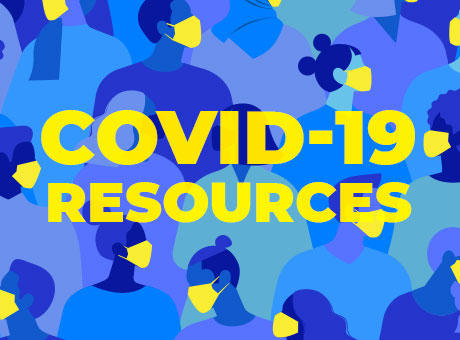We’ve all been there. Things are piling up and we don’t have enough hours in the day to get everything done. Aunt Agatha keeps calling, your cat is sick, you haven’t seen your girlfriend in a month, your professor assigns a 1,000 word paper, and, oh yeah, there’s a global pandemic happening in the background. How are you gonna do it all?
Stress can come from anywhere and everywhere, especially if you’re naturally an anxious person. There are websites that teach you to “Reduce stress by getting rid of unwanted activities!” These don’t help if you’re already at your bare minimum with existing stress. Also, you don’t want to give up coffee when you’ve got everything due. That’s what we’re here for. Here are five ways to manage all the s#!t in your life, not just “reduce” it.

1. Make a calendar
It’s often difficult for people to organize themselves because there are so many things to do and so little time. Create a calendar of the minute, the hour, and even the second. You need to be willing to put some stuff aside in order to catch up. Here’s a little example…
Let’s say you have 1,000 words to write in four days. Then 20 math questions to do for tomorrow and 6 emails to write in three days. You also have to call your Aunt Agatha since she just got out of the hospital for heart surgery (very successful, so you’re not worried), and it’s already 10 PM on the day before those math questions. Make yourself a calendar.
“10 questions on math, then 250-450 words of text, then 2 emails. Aunt Agatha won’t be awake, but I’m setting myself a reminder to call her tomorrow morning. Then I’ll go to sleep and actually sleep well. And tomorrow morning, I’ll call Aunt Agatha, then write another 250-450 words on that essay, then another 2 emails. And the same thing the day after.”
If you plan it, your workload is easier to manage when it’s broken down into bite-sized pieces. If you finish all that and it’s only 11 PM, don’t watch Netflix. Go to sleep! You’ll wake up a little more coherent in the morning and be able to get more work done. Then at 2 PM the next day, once you’ve got all your work done, you can guilt-free binge-watch the new season of Peaky Blinders because you know you deserve it. Somehow, it’s even more comfortable in bed than usual.
2. Learn to say “no” to new work
When you’re doing all this work it’s easy to pick up more work to procrastinate. Don’t kid yourself. More work is procrastinating the work you’ve already got. And it can be fulfilling to take on a little task (like the dishes) since you can finish it and feel good about yourself. But that’s just standing in the way of the real work. It’s not actually helping you finish your homework. So, when your mom asks you to proofread an email, or your little sister wants help with her math homework, learn to say no. “No, I’m sorry but I need to finish my homework. I might be able to help you after.”
3. Bring down your social engagement
I know it can be tempting to check Instagram, Facebook, and emails. “What if something happens that I need to know about?” It’s not so important that you interrupt your schedule. If a friend’s in a crisis, they’ll call 911. You are not responsible for anything that others do, except for yourself. Learn to separate your “needs” from the “wants”. You probably need to call your Aunt Agatha, but you really don’t need to check Instagram for the fifth time. It’s okay, Kanye West is still nuts. Social media can add to your existing stress. So, take a deep breath and dive into the work. This will make you more productive than skirting around it.
4. Take a deep breath
Your body naturally tenses up to deal with existing stress in order to get you through it. But doing your 1,000 word essay while you’re in fight or flight mode isn’t the best way to boost grades. It can also damage your muscles to have them tense for so long. So, whenever you feel stressed, try these relaxation methods:
- Take a deep breath from your stomach. If you keep taking small breaths, air doesn’t get all the way to the bottom of your lungs and you end up hyperventilating. Put your hand on your stomach and push it upwards with your breath. Repeat three times.
- Drop your shoulders. We tense up our shoulders without noticing and it can impact our ability to think clearly. Wiggle them around a little bit, and just relax.
- Unclench your jaw. This one is a tricky one, as we don’t even know we do it.
5. Just DO the work already
When we’re faced with work we don’t want to do, it’s a natural instinct to shy away from it—avoid this. Really dive into it. The more you do that, the more you’ll understand the work. And the better the results you’ll produce.
You can deal with your existing stress. Now, go write that paper!

SLN is here for you
*Opinions expressed are those of the author, and not necessarily those of Student Life Network or their partners.




